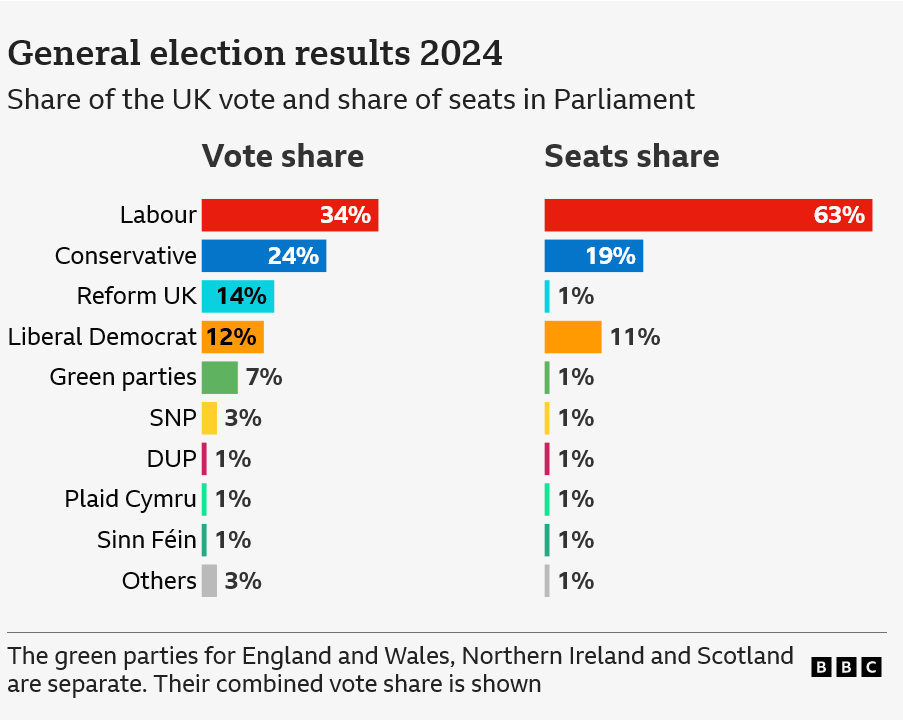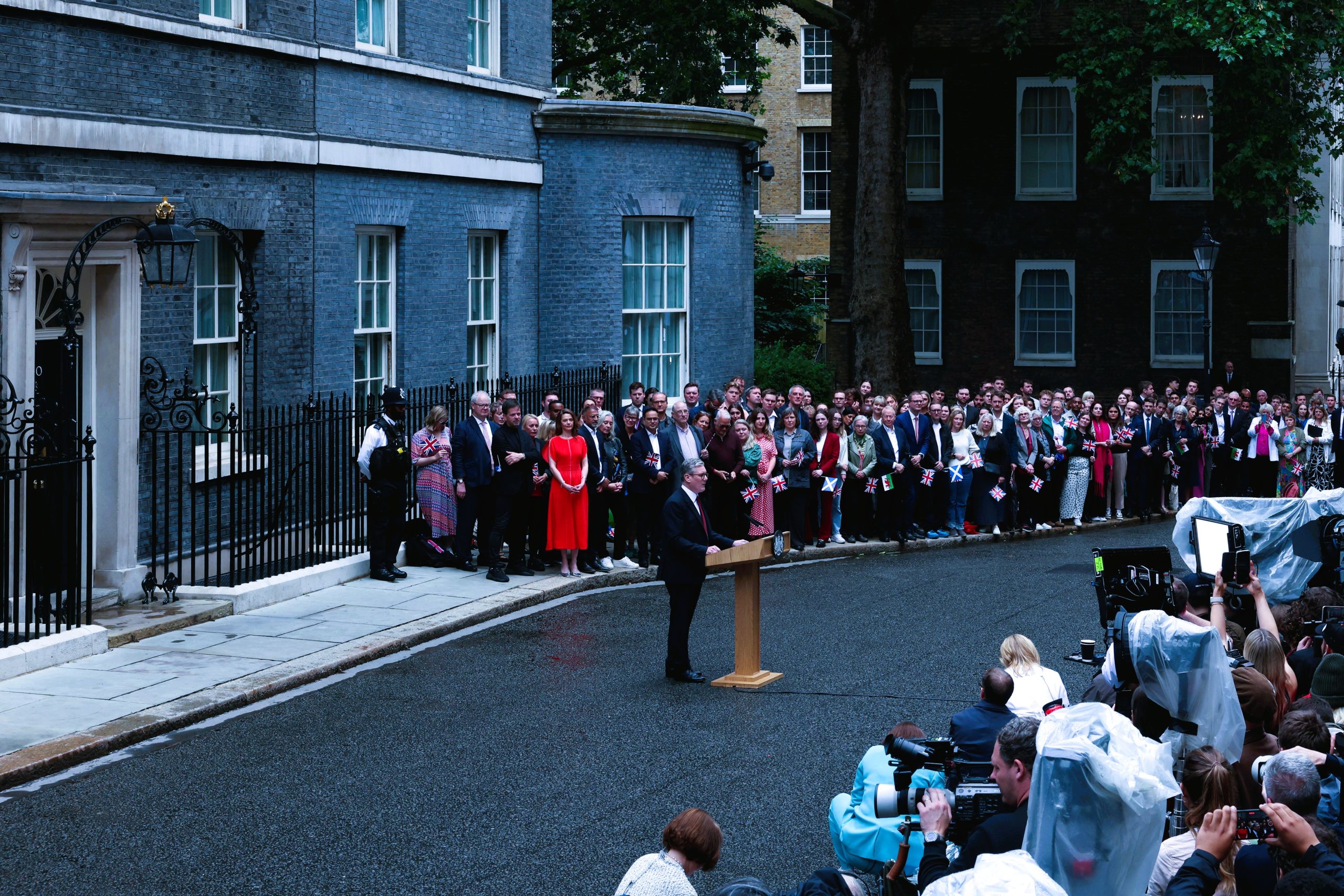Not a Verdict – of the Labour Party or for Sir Keir Starmer
The number of seats a certain political machinery garners through the electoral process, which follows the first-past-the-post system, does not reflect an iota of the reality of the electorate’s sentiments. The final verdict in terms of seat share is farfetched; the seats secured are quadruple the total vote share for the party or bloc. The same scenario prevailed in the citadel of the first-past-the-post system, which a lot of countries adopted since its colonial footprint around the world—the United Kingdom of Great Britain and Northern Ireland, or colloquially known as the United Kingdom.
In the elections for the House of Commons, the Labour Party secured an overwhelming majority of 290 seats, for a total of 411 seats. However, with a vote share of just 34% and, on the contrary, 63% of the Commons being represented by Labour, this is where the main story of July 4 lies: the vital need for electoral reforms. But more importantly, Sir Keir Starmer and the Party will have to win confidence during the coming months to win a majority in actuality in terms of legitimate credibility and popularity amongst the people of the United Kingdom. A more embarrassing fact for the Prime Minister would be that his predecessor and arch ideological nemesis in the center-left of British politics, under whose leadership the Labour Party fought the 2017 and 2019 elections, Jeremy Corbyn, secured a greater number of actual votes casted in the ballot box. Signalling dissent amongst traditional Labour supporters for its policies like on Gaza, the continuation of the economic austerity implemented by the Tories, and lack of commitment to green policies.
Change—a word echoed by Starmer, and the party served as the focal theme of their campaign—and may the “change” be more than the dismal manifesto they had prepared.
A Shift in Global Political Spectrum
As I have mentioned numerous times in my previous writings, the disillusionment of the people towards the established conservatives and social democrats around the world is giving leeway to fringes like the populist left, but increasingly and more dangerously, the fascist anti-globalist movement led by the far right of the political spectrum. Another interpretation is like that of Fareed Zakaria in his latest book, The Age of Revolutions, where he states that the traditional political spectrum of left and right has progressed to that of people who support a more closed society and on the other hand a more open one, may it be in terms of immigration, economy, technology, or even diplomatic cooperation.
The very argument put forth by Fareed, a CNN anchor, author, and Washington Post columnist, is reflected in the overall result of the British election. A clear choice between a want for an open society, which was led by the Labour Party, followed by the Liberal Democrats, the Greens, and the Scottish Nationalist Party, totalling a vote share of 53%, and the opposite aisle, led by the Tories, followed by the Reform Party, and others, garnered the other half, representing the side of the political spectrum that advocates for a closed society with ethnonationalism at its forefront.
Politics around the world has already changed, and the coming elections also reverberate the fact that it is a decision between the flock that supports the democratic liberalism that dominated the world post-World War II or the protectionists, who advocate a more closed-off society with a mantra of homogeneity, inequality, and exclusivity.

Share of the UK vote and share of seats in Parliament




